Teaching the Humanoid Robot ICub Manipulation Skills
Video
Link to the file
You may use this video for research and teaching purposes. Please cite the Chair of Cyber-Physical-Systems or the corresponding research paper.
You may use this video for research and teaching purposes. Please cite the Chair of Cyber-Physical-Systems or the corresponding research paper.

You are interested in working with modern robots or want to understand how such machines ‘learn’?
If so, this bachelor thesis will enable you to dig into the fascinating world of robot learning. You will implement and apply modern machine learning algorithms in Python, Matlab or C++/ROS.
Your learning or control algorithm will be evaluated in cyber-physical-systems. Find out which theses are currently supervised and offered.
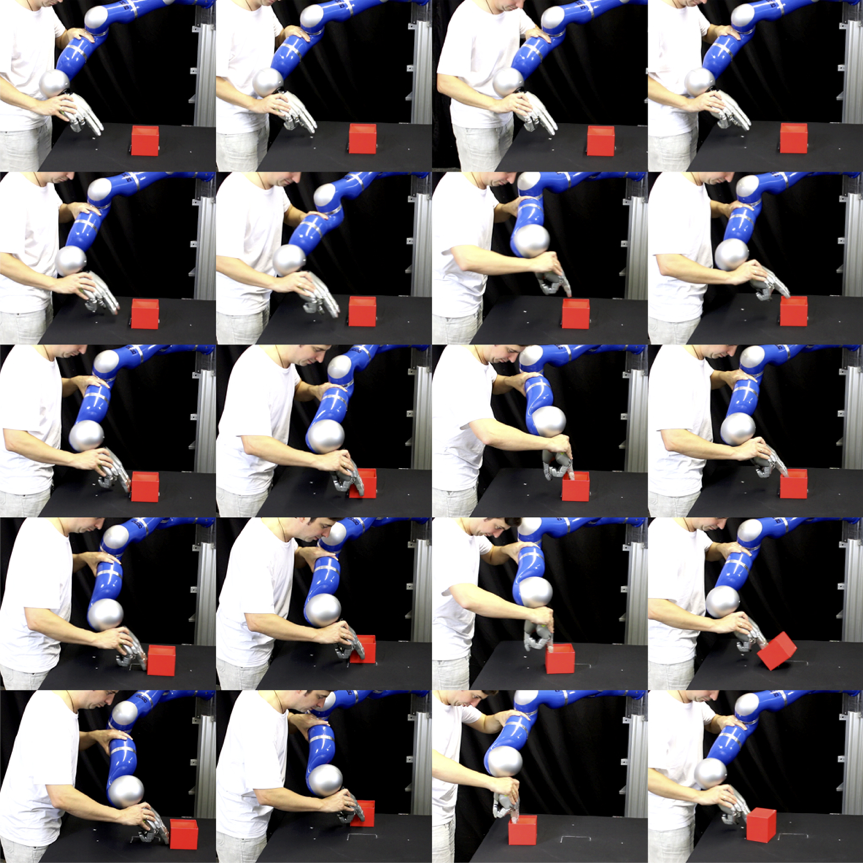
You are interested in working with modern robots or want to understand how such machines ‘learn’?
If so, this project will enable you to dig into the fascinating world of robot learning.
The course provides a structured and well motivated overview over modern techniques and tools which enable the students to define learning problems in Cyber-Physical-Systems.

This post provides information on whom to contact depending on your purpose.
Note that this post is continuously updated to keep the contact persons up-to-date.
If you discover out-dated information, please contact our secretary.
Bettina.Hotter@unileoben.ac.at
Für Absagen: xyz@unileoben.ac.at
karina.taxacher@unileoben.ac.at
kathrin.moitzi@unileoben.ac.at
julia.schmidbauer@unileoben.ac.at
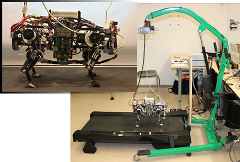
This post discusses how to develop a low cost treadmill with a closed-loop feedback controller for reinforcement learning experiments.
MATLAB and JAVA code is linked.
installFTSensor.m (which add the jar to your classpath.txt)testFTSensor.m script which builds on the wrapper class MatlabFTCL5040Sensor (you need to add this file to your path)
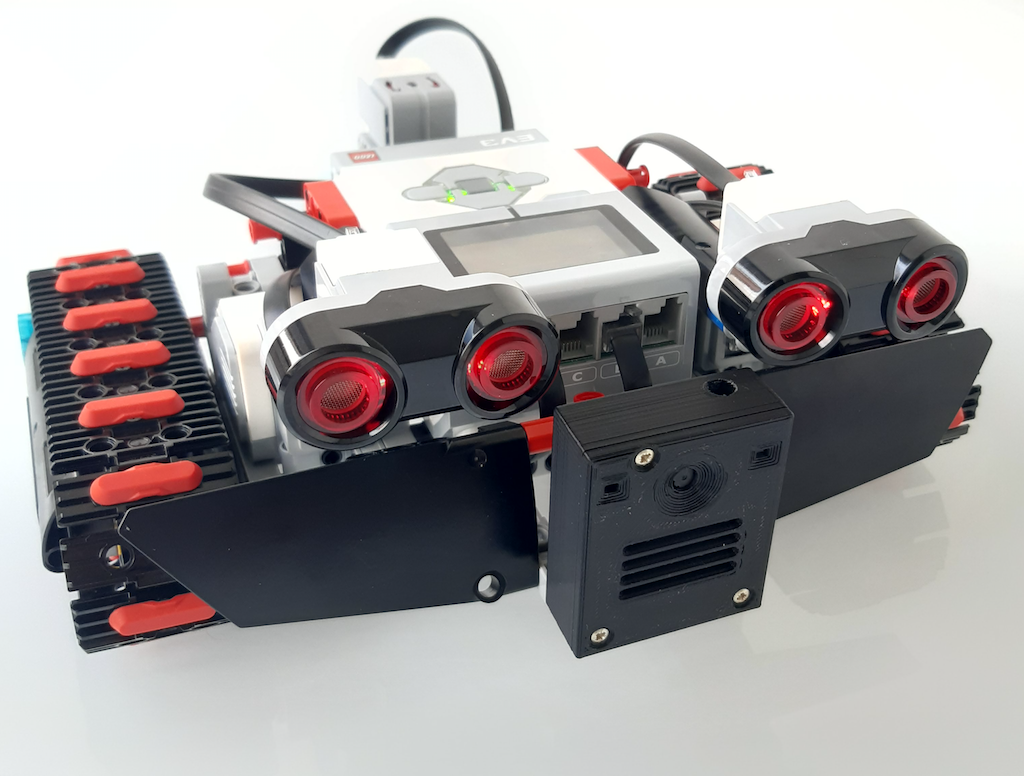
We have five EV3 sets and use them for studying robot control, motion planning and visual navigation from depth images.
We use our GitHup LEGO Python project for our developments.
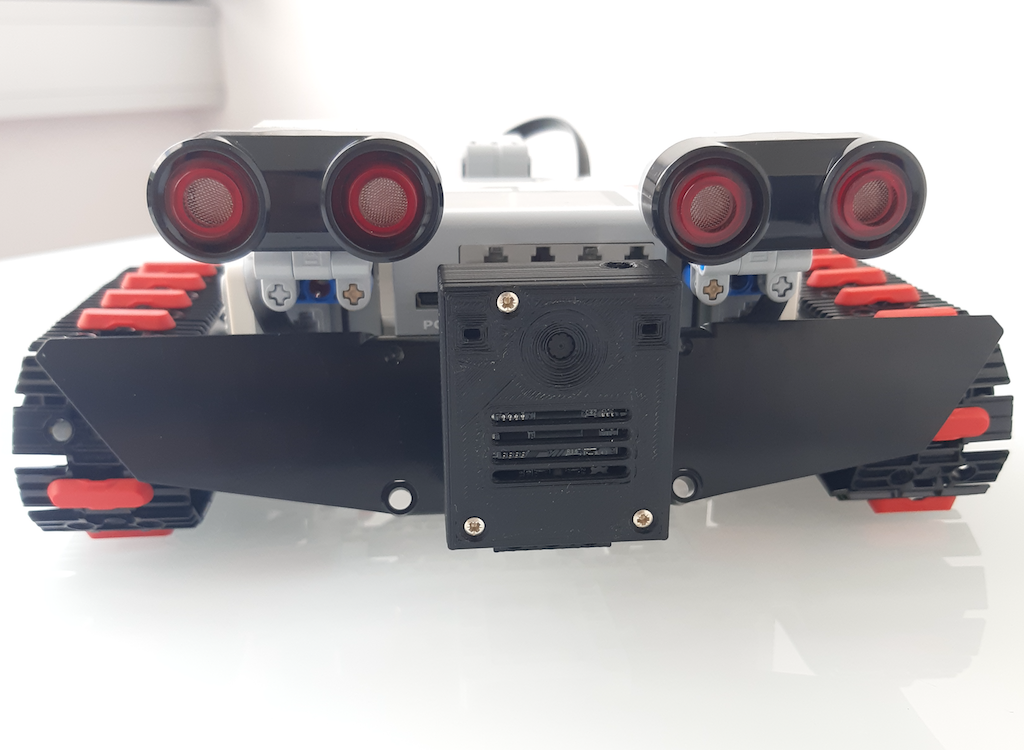
Several special purpose sensors including depth image cameras (shown in the center in the image), IMUs, accelerometers, gyroscopes, sonic sensors (two are shown in the image), etc. can be connected to the EV3 brick.
The EV3 systems can be used to explore neural sensor fusion approaches, embedded computing implementations and classical mobile robotics tasks.
https://vimeo.com/501651310https://vimeo.com/374166607
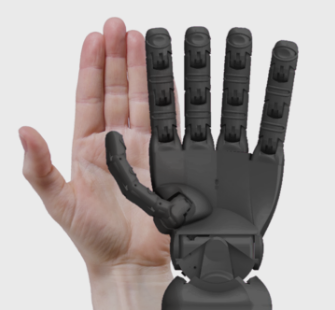
We use a adult-sized robot hand for learning grasping and object manipulation skills. The hand is mounted on our FRANKA EMIKA Panda robot.
The hand has 19 degrees-of-freedom and uses 8 smart actuators for precise control (actuators contained inside the unit).
Under actuated design aims to provide the right balance between fine control and conformance to the shape of the objects.
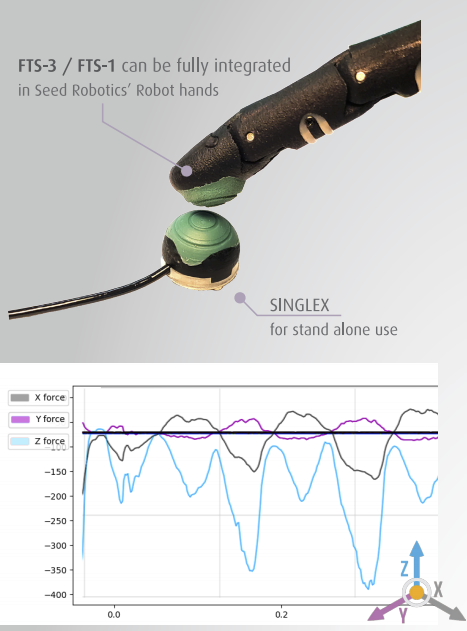
All actuators provide real time control and feedback of position, speed and current measurement (with direction), enabling inference of applied force.
Additional data including actuator temperature, (over)load status and PWM, a Palm ToF Distance sensor and optional Capacitive pads at the back of the palm complete the sensor array.
We also have five 3-axis force-torque sensors (FTS) (shown in the image) attached to each finger tip. The FTS measure contact force and shear forces with a resolution of 1mN / 0.1g.
2020 |
|
Sample-Efficient Covariance Matrix Adaptation Evolutional Strategy via Simulated Rollouts in Neural Networks Proceedings Article In: International Conference on Advances in Signal Processing and Artificial Intelligence (ASPAI’ 2020), 2020. | 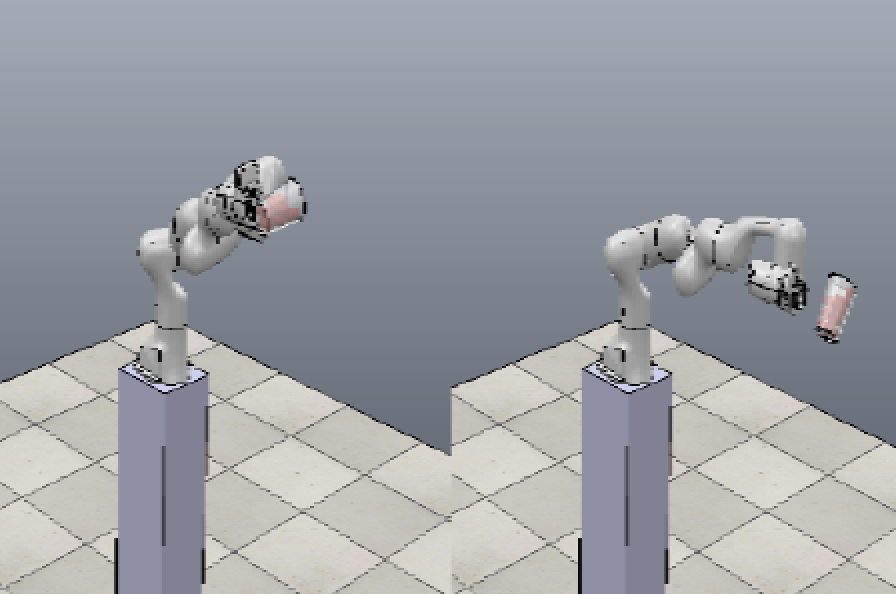 |
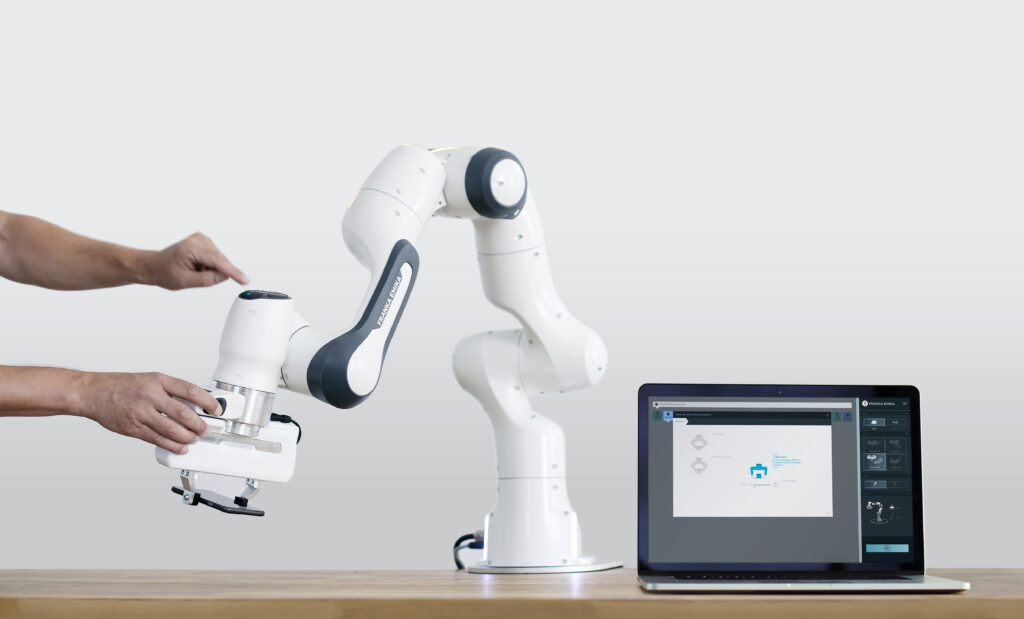
We are developing a repository for real-time control of the FRANKA EMIKA Panda 7-dof robot arm.
Our project is based on ROS and allows to teleoperate the robot arm in real-time using motion tracking data provided by OptiTrack’s Motive software.
2020 |
|
Sample-Efficient Covariance Matrix Adaptation Evolutional Strategy via Simulated Rollouts in Neural Networks Proceedings Article In: International Conference on Advances in Signal Processing and Artificial Intelligence (ASPAI’ 2020), 2020. |  |
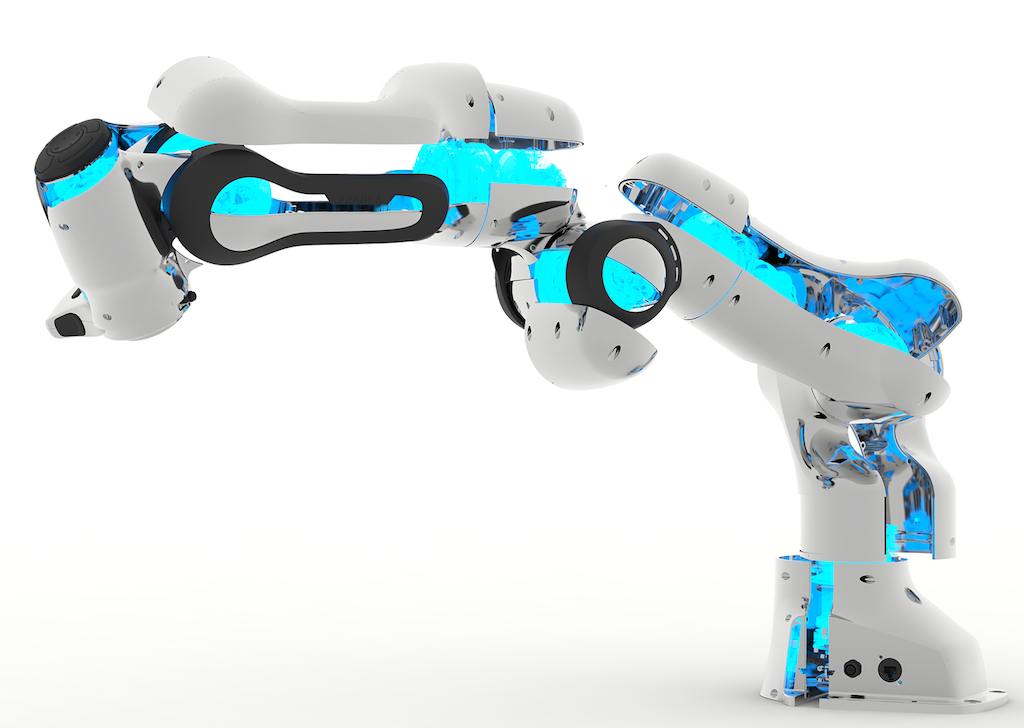
FRANKA EMIKA’s Panda robot arm is a complient, light-weight robot arm with seven degrees-of-freedom.
2020 |
|
Sample-Efficient Covariance Matrix Adaptation Evolutional Strategy via Simulated Rollouts in Neural Networks Proceedings Article In: International Conference on Advances in Signal Processing and Artificial Intelligence (ASPAI’ 2020), 2020. |  |
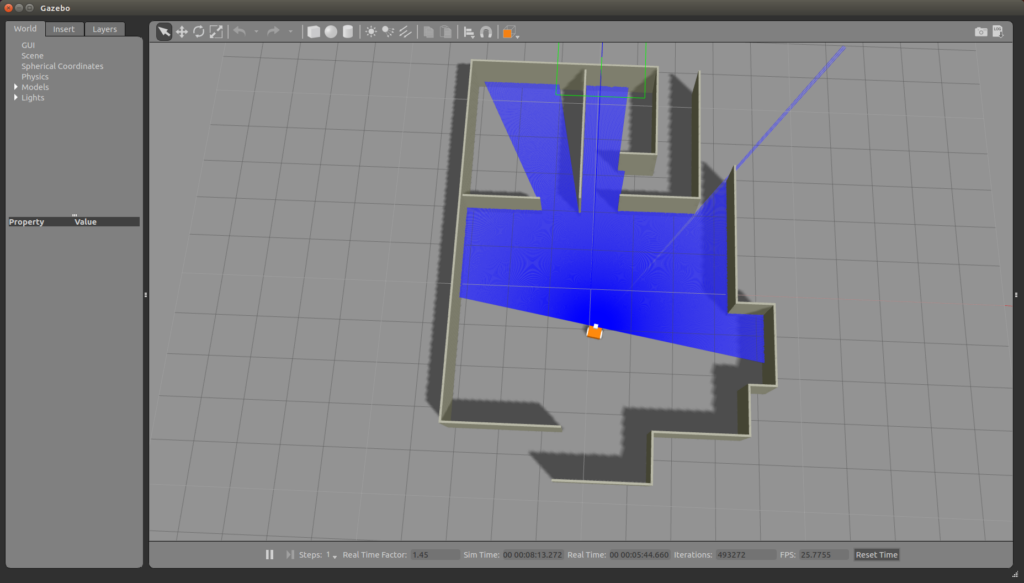
Nils Rottmann, M.Sc. has developed a tutorial on using ROS and Gazebo.
This tutorial was used in our humanoid robotics and machine learning lectures.